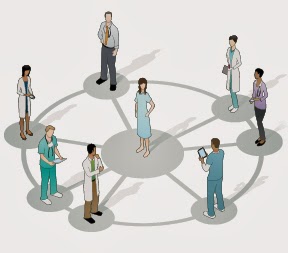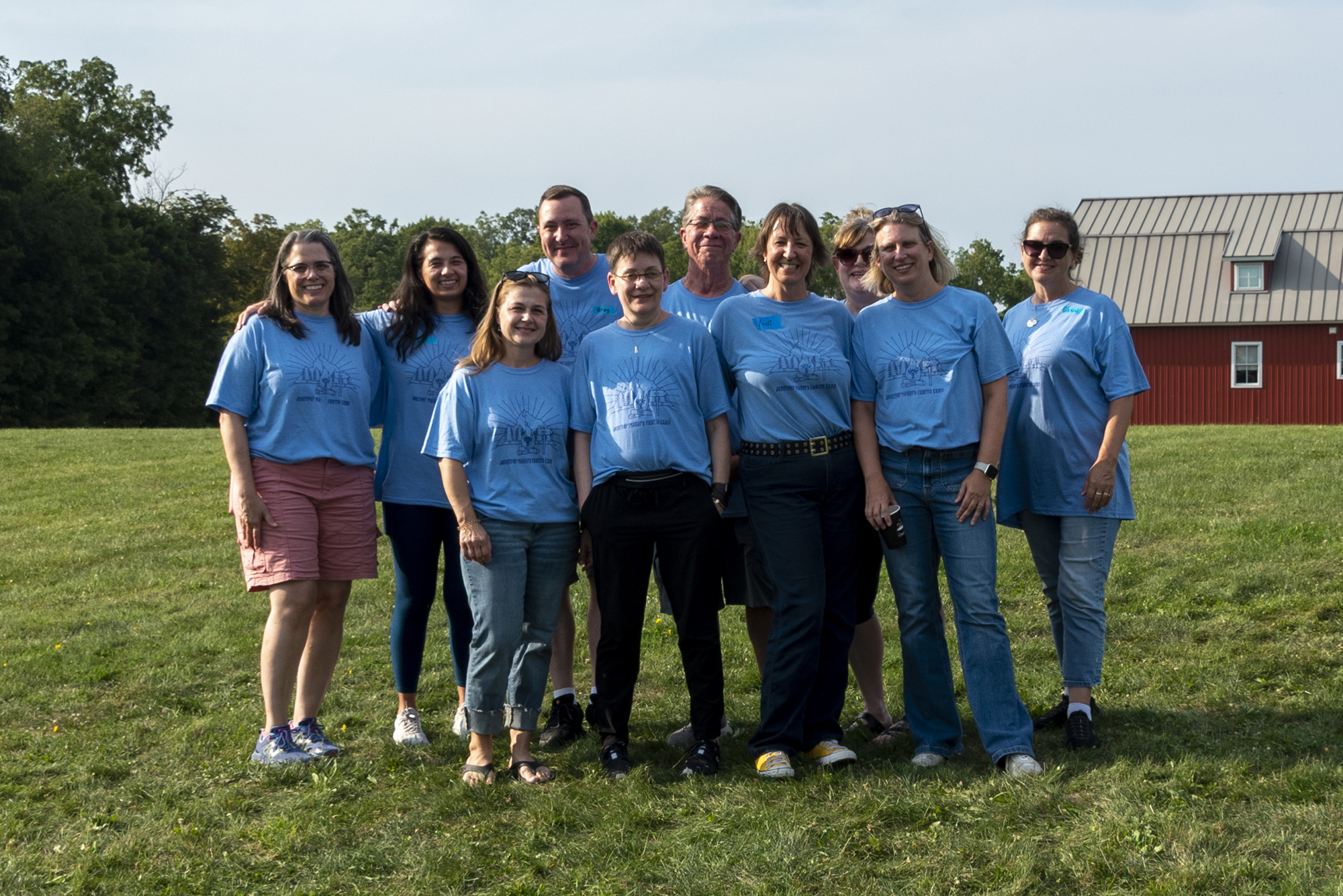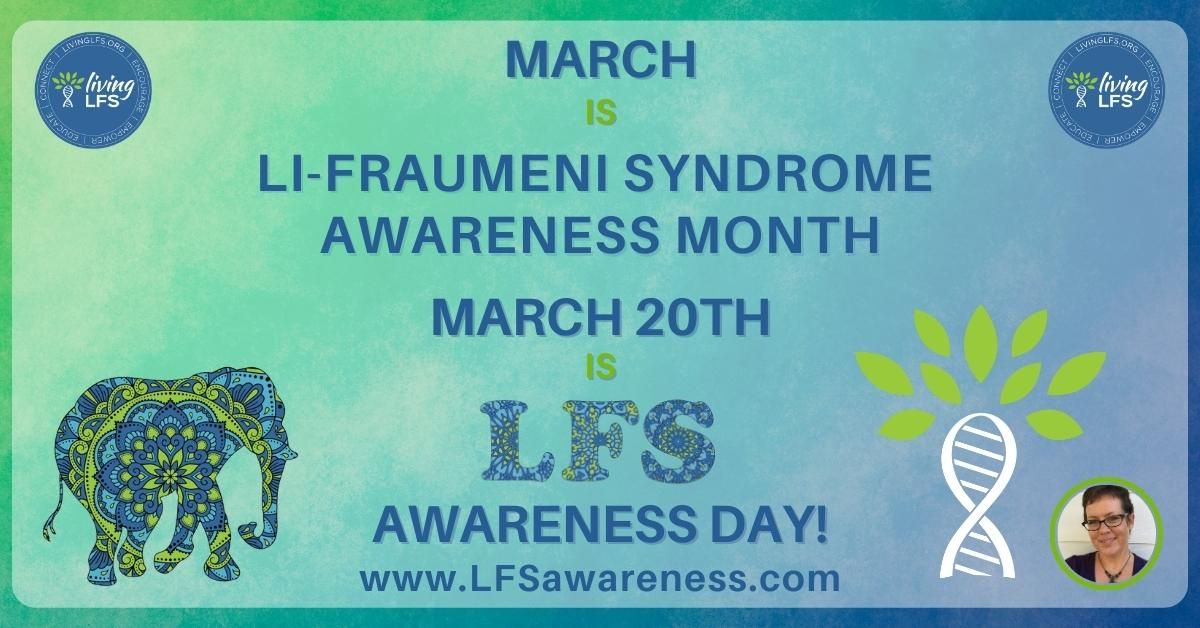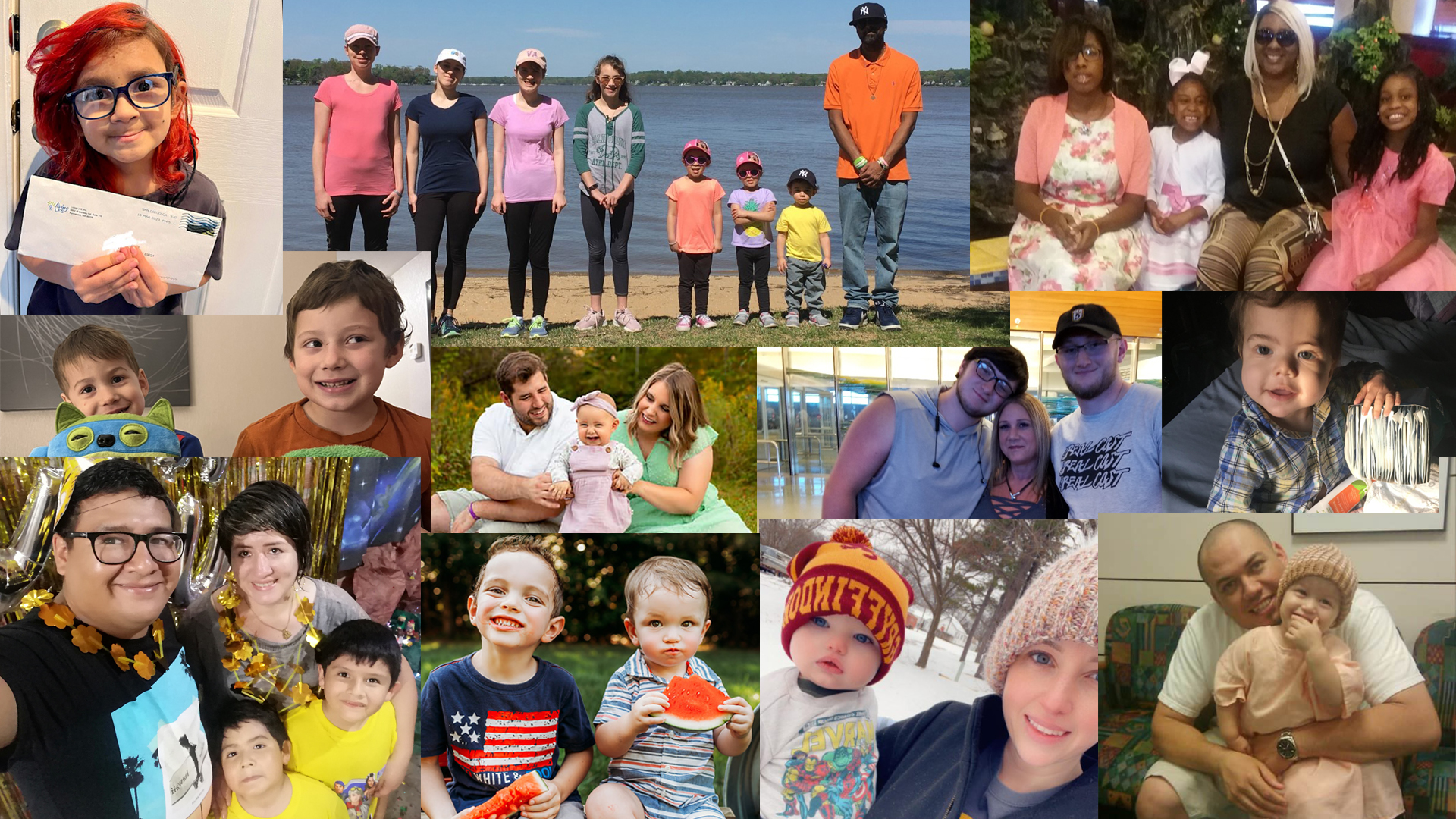One of the first questions mutants ask after diagnosis is- where should I go to receive the best care for LFS?
Like everything when living LFS- that depends. It depends on where you live. It depends on your insurance and financial resources. It depends on your lifestyle and how you want to approach screening and treatment. There are few Cancer Centers that are familiar and experienced with LFS. We are a rare population with specialized needs. We can get good care with the right community of care givers.
Here are some things to consider when looking for LFS CARE.
L - Location
F - Finances
S - Specialty
C - Communication
A - Attention
R - Resourcefulness
E - Experience
COMMUNITY. There is no one doctor, geneticist, or specialist that can treat all the needs of LFSers. You will require a TEAM of providers to address the needs of this syndrome. Sometimes it feels like keeping up with the health needs of LFS is a full time job. It is important that these doctors work together FOR you. They will need to communicate with you and with each other in order for you to get the best care. You will be your best advocate and the glue that will hold your CARE team together. Some key players of the LFS TEAM are genetic counselors, primary care docs, oncologists, surgical oncologists and radiologists. Many times a good genetic counselor will be your quarterback. This person knows you and your emotional and physical needs as well as enough science and medicine to help coordinate the best screening and treatment plans to fill your needs. Many doctors have only heard of LFS in theory. This is one of the frustrating aspects of Living LFS. If you value an experienced LFS doc, you will have to travel to one of the few institutions who have seen multiple LFS patients. Whether or not you do this, depends a lot on if you can get quality care near you.
Location. Screening and care for LFS can be fairly intensive. The Toronto Protocol recommends annual MRIs, bloodwork and clinical exams twice a year. Sometimes having these appointments nearer to home makes it easier to accomplish them. Having a doctor near you that is familiar with your history also aids in the consistency of treatment. By the nature of LFS, the variety and rarity of cancers we see may present a challenge to even the best local team. There are many expenses associated with traveling away from home to get screening and treatment. It requires additional time and consideration. Often times specialists can be consulted and coordinate with your home team for screening and treatment. Don't be afraid to ask for your team to work together to get you the best treatment in the best location for you. Your needs may not always be accommodated, but it is good to explore options.
Finances. Insurance and financial considerations of medical care are some of the most time consuming and stressful issues LFSers face. Finding an experienced LFS doc that is in your insurance network may be tough. Most of the bigger cancer centers are familiar with these concerns and have dedicated staff to help arrange payment plans. Since LFS is rare- sometimes information from other hereditary cancer sites is helpful. FORCE- Facing Our Risk of Cancer Empowered deals mostly with hereditary breast cancer- which is a huge component of LFS. They have a great page with financial resources here. The American Society of Clinical Oncology(ASCO) has good information on the finances of cancer care and helpful resources can be found here.
Specialty. LFSers are rare. The cancers we face are even more rare. Not only will you need access to specialists, there are a wide variety of specialists LFS families might need in a variety of locations. We are special and our care requires a specialized approach, tailored to our genetic mutation as well as our personal needs. Sometimes it is better to have a specialist in a particular cancer you are facing than to have an LFS specific doc. A good specialist will do the extra legwork to take LFS into consideration while giving you expert specialty care. LFS doesn't necessarily follow the rules, we need providers with specific knowledge that can think outside of the box for us.
Communication. Open lines of communication between LFSers and docs is imperative. You need to feel comfortable bringing up any concerns with your team. The Team also needs to understand due to the highly stressful nature of LFS and screening- how important communication of test results is to us. We talk to our docs more than an average patient. We also have a better than average understanding of how all things medical work. A good team member will expedite your ability to contact them. Your docs also need to be willing to communicate with all members of the team. There are many moving pieces to the LFS puzzle that fit together better when everyone is working on the same page. Sometimes a simple conversation between providers can efficiently manage complex problems.
Attention. LFSers need dedicated attention. We need attention to detail. We need to pay attention to our bodies and have our physicians pay attention to our concerns. We are notorious worrywarts about various aches and pains with good reason. A LFS doctor needs to have a healthy respect for our concerns and address them quickly, even if it is only a nagging gut. More than one mutant cancer has been detected when a LFSer just felt something was "off".
Resourcefulness. There is no current LFS Standard of Care. We need a team who is prepared to do a little extra legwork to incorporate our genetics into our plan. A good LFS provider will be able to think outside of the proverbial box to find the most appropriate and best care for their patient. A good LFS Team Member will understand that we don't always fit in the conventional standards and tailor research and care to our individualized needs and sometimes this means an interdisciplinary approach and working with other experts.
Experience. Experience with LFS is hard to find. Experience with LFS is also not a prerequisite for excellent care. But sometimes only an experienced LFS provider can give LFSers the quality of care required to fight this disease. Institutions like Dana Farber were one of the first to identify and research LFS. Other institutions like SickKids in Toronto have researchers lead by Dr. David Malkin who are champions for the LFS community and develop Protocols for screening. The Huntsman Clinic in Utah has a genetics team headed by Dr. Joshua Schiffman that is passionately working to help mutants through this zoo by innovative research with elephants who have 20 copies of p53. MDAnderson in Texas is highly respected by many mutants and comes highly recommended for their understanding of LFS and quality of specialty care. Memorial Sloan Kettering in NY is known as the leader when it comes to sarcoma care. Children's Hospital of Philadephia and St. Jude's both work diligently to help our littlest mutants and the implications defective p53 has for them. These are just some of the institutions that are familiar with LFS.
LFSers face unique challenges when finding the best care teams to address all of the potential health concerns of Li Fraumeni Syndrome. It is a full time job. Everyone has different preferences when choosing providers. Please feel free to comment below if you have had a good or bad experience with providers and where. Until there is more awareness of LFS, we have to be our own best advocates for LFS CARE.
Resources
MSKCC- Cancer Care Team http://www.mskcc.org/cancer-care/your-care-team
FORCE-Facing Our Risk of Cancer Empowered- hereditary breast cancer www.facingourrisk.
ASCO- American Society of Clinical Oncology- www.cancer.net
Cancer Compass- www.cancercompass.com



